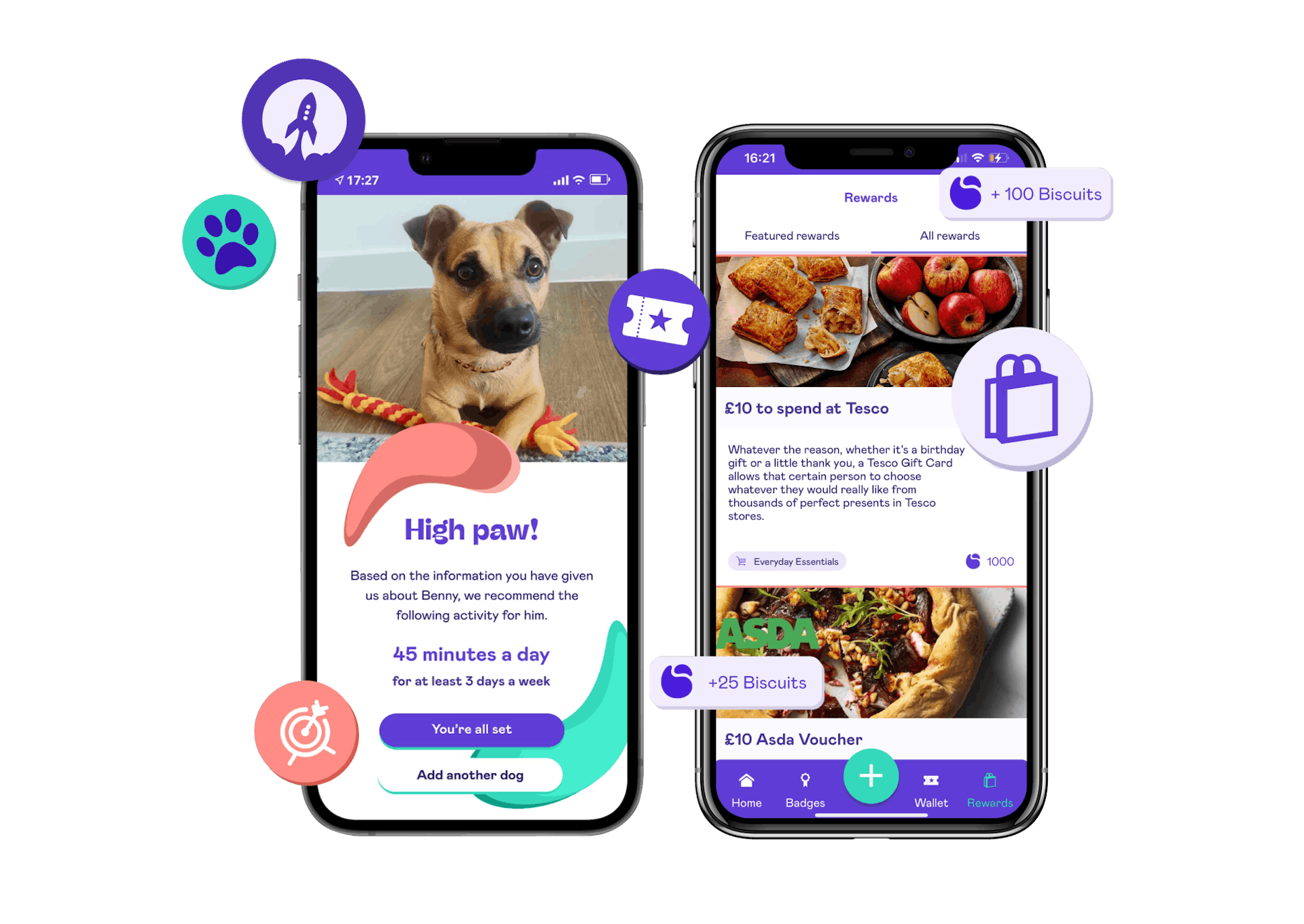Beyond Off-The-Shelf: Bespoke Software Examples That Drive Business Success

In the ever-evolving landscape of technology, businesses of all sizes are constantly evaluating their software needs.
Existing solutions may no longer meet the demands of growth, or a new business idea might require a truly unique approach. This is where the choice between off-the-shelf and bespoke software becomes crucial.
While each option has its merits, bespoke software offers the power of customisation. This article dives into real-world examples of bespoke software and explores how it transforms businesses across various industries.
We discuss situations where bespoke solutions excel and help you determine if it's the right path for your digital transformation.
What Is Bespoke Software?
Bespoke software, also known as custom software, is software that is specifically designed and developed for a particular organisation or individual to meet their unique needs and requirements.
Unlike off-the-shelf software, which is designed for a broader audience, bespoke software is tailored to fit a specific use case.
What Is Off-the-Shelf Software?
In contrast, an off-the-shelf software solution is a ready-made product.
This type of custom software is developed for the mass market and designed to respond to the needs of as many users as possible by solving common business challenges.
The critical difference is that off-the-shelf software comes with a large set of pre-built features, functionality, and templates that can be adapted to a certain degree to help businesses meet their needs.
To illustrate our point, here are some examples of commercial software that helps with specific business processes:
➡️ Mail services such as Gmail and Microsoft Outlook are ready-packaged solutions that allow millions of users to communicate via Email and share files.
➡️ Accounting software such as Sage, Xero, and QuickBooks is off-the-shelf software designed to allow businesses to manage accounts and produce financial reports.
➡️ Customer Relationship Management (CRM) software such as Salesforce CRM, HubSpot, and Zoho are all ready-to-go solutions that enable businesses to track all communications and nurture relationships with their leads and clients.
Bespoke Software Examples
Now that we've laid the groundwork, let's take a closer look at bespoke software in action.
The following examples showcase how it's transforming industries and solving real-world challenges.
E-commerce
Shopify
While we often think of bespoke software as solutions created for a specific client, companies like Shopify, Amazon, and eBay initially developed their platforms as internal bespoke solutions to differentiate themselves in the market.
Shopify, for instance, is a flexible e-commerce platform with a wide array of features and templates as its foundation. But what truly sets it apart is the extensive customisation it offers.
Businesses can individualise their storefronts with custom themes, third-party or bespoke apps, and integrations with various tools for inventory management, order processing, and marketing.
Moreover, Shopify's template engine, Liquid, empowers businesses to build custom functions and seamlessly integrate them into their e-commerce websites, enabling a high degree of personalisation.
Amazon
Another great example of bespoke software is Amazon's Fulfillment Center Management System, which manages its vast network of fulfilment centres, warehouses, and logistical operations.
These systems optimise inventory management, order processing, and shipping logistics to ensure efficient operations and timely customer delivery.
Highly successful market giants tend to always opt for custom software solutions, allowing them to differentiate themselves from their competitors and provide the best user experience.
Healthcare
Mayo Clinic’s Custom Oncology Treatment Software
In collaboration with SimBioSys, they are developing bespoke oncology software that leverages AI, biophysical modelling, and patient imaging data to personalise cancer treatment.
This software aims to revolutionise precision medicine by improving surgical planning, drug selection, and risk assessment for breast cancer patients.
Careful
Careful is a digital health platform that enhances collaboration among doctors, nurses, allied health workers, and other healthcare professionals.
It facilitates seamless communication and efficient sharing of electronic medical records, promoting a coordinated approach to patient care.
The app offers a comprehensive overview of each patient's health records, current status, and future care plans, enabling healthcare teams to make informed decisions and ensure smooth transitions between providers.
Additionally, Careful encourages communication between patients, families, and caregivers, placing patients at the centre of their care journey.
🚀 We collaborated with Careful on this bespoke software solution. You can read the case study here.

Finance
Goldman Sachs
Their bespoke trading platform, "SecDB", is central to their operations. It integrates real-time market data, advanced algorithms, and custom risk models tailored to their trading style and risk tolerance.
This allows them to analyse opportunities, execute trades precisely, and continuously monitor their portfolio for optimal performance.
PayPal
To protect its global network, PayPal leverages custom-built fraud detection software that utilises machine learning algorithms to identify and prevent fraudulent activity.
These systems analyse a massive volume of transactions, identifying patterns indicative of fraud and adapting in real-time to evolving threats.
This custom-built solution plays a critical role in protecting millions of users and maintaining the integrity of their platform.
Other Bespoke Software Types
Siemens Digital Industries Software Solutions
Siemens Digital Industries Software provides bespoke software solutions for manufacturing companies across various industries, offering a range of products tailored to specific manufacturing processes and requirements.
One solution is Siemens' Manufacturing Execution System (MES), which helps companies optimise production processes, improve efficiency, and ensure quality control.
Tesla's Vehicle Operating System (OS)
Tesla develops bespoke software for its electric vehicles, including the vehicle operating system (OS) which controls various functions such as navigation, entertainment, autopilot features, and over-the-air software updates.
This tailored software is necessary to provide a seamless user experience and integrate with Tesla's hardware components.
SAP ERP Solutions
SAP offers bespoke enterprise resource planning (ERP) software solutions for businesses across various industries, providing integrated modules for managing finance, human resources, supply chain, and customer relationships.
This bespoke software is highly customisable and tailored to each organisation's specific processes and requirements.
Biscuit
Many innovative startups with unique offerings rely on bespoke software solutions to bring their vision to life.
For example, Biscuit, a pet care business, envisioned a bespoke smartphone app that creates a pet well-being ecosystem to empower and reward pet owners for prioritising their pet's health.
The end result is an app that tracks activities like walks, integrates with rewards platforms, and ultimately helps build a stronger bond between pets and their humans. This level of customisation required the expertise of a bespoke software development company.

Off-the-Shelf Software vs Bespoke Software: What’s Best for Your Business?
By now you should have a better understanding of the differences between these two software options, having seen examples of each in the market.
If you’re still struggling to determine which option is right for your business — don’t fret, we’ve compiled a list of indicators to help you decide.
Off-the-shelf software is a good option for your business if:
✔️Quick implementation: You need a solution deployed rapidly. For example, a small business could quickly use Shopify to set up an online store.
✔️Cost-consciousness: You prioritise lower upfront costs and prefer a subscription model. Tools like Mailchimp or Trello are good examples, as they offer essential marketing and project management tools.
✔️Standard needs: Your business processes are standard and well-supported by existing software.
✔️Minimal customisation: You don't foresee needing unique features or heavy modifications.
✔️Risk aversion: You're hesitant to rush into investing in a custom-built solution.
When to Consider Bespoke Software Development
Partnering with a software development company to create bespoke software is a good option for your business if you:
✔️You need a competitive edge: You want a unique system to differentiate yourself in the market. Think of Amazon's custom e-commerce and logistics platform, which revolutionised online shopping.
✔️You have specific requirements: You have an innovative idea or complex workflow that off-the-shelf software can't address, like Mayo Clinic's oncology treatment planning software.
✔️Desire scalability: You anticipate growth and need a solution to evolve alongside your business.
✔️Prioritise customer focus: You want to create software that precisely matches your users' needs. The pet-care app Biscuit is a prime example, offering features that encourage and reward better pet ownership.
✔️Require seamless integration: You need to connect multiple existing systems or have a specific integration requirement to achieve a streamlined workflow. Bespoke software can be custom-built to bridge these gaps.
✔️Value control and flexibility: You want ownership of the software and the ability to modify it over time to adapt to changing business needs.
We spoke to one of our software engineers, Charlie Farrington, who shared his thoughts on the bespoke software vs off-the-shelf software debate.
According to Charlie, the main downfall of opting for an off-the-self solution as a business is that you have the responsibility of controlling and managing your product directly. And this has many consequences. Let’s dig a little deeper in the section below.
The Disadvantages of Off-the-Shelf Software
Delayed Support
Any support request made against the product would be triaged and prioritised alongside support requests from all the other users of that platform, so realistically, this means that you would have to live with or work around any bug or issue you encounter.

This can cause technical debt and impact customer experiences, either by having bugs exist on your service for an extended time or by having to introduce user flows that are less efficient to comply with the off-the-shelf solution
Limited Functionality
While an off-the-shelf solution might solve all of your immediate needs, it might not be flexible enough to accommodate evolving business needs in the future.

At worst, this might block you from providing the functionality you find that you want or need in the future, and as such, you might find you have to change the service you are using completely
It’s common for many companies to start with an off-the-shelf solution until their needs become more advanced, in which case they might require a bespoke alternative.
Putting All Your Eggs in One Basket
When investing in a custom solution, you are tying yourself to the off-the-shelf service provider. If that service goes down, i.e., if the provider goes bankrupt and closes up shop, your business solution will go down with it, and that’s important to understand.
If we flip the coin, one of the main benefits of an off-the-shelf product would be a solution within an area that requires a vast amount of domain knowledge to develop, with Xero being a good example.
🚀 For more insights to help you decide whether bespoke software is best for your business, check out our detailed blog.
While the above indications can help guide you on what to go for, it’s important to understand that the decision around what type of software would be the best fit for your business, ultimately depends on your individual requirements.
As we mentioned before, both bespoke software development and off-the-shelf solutions have advantages and disadvantages.
Final Thoughts
When considering your options, it’s recommended to begin with the end goal in mind.
What aspirations do you have for your business? What type of scalability do you require? What are your short- versus long-term goals? Taking time to think these questions through will help make the decision easier.
Deciding on which type of software to opt for can feel overwhelming. We get it, which is why at Rocketmakers, we have helped dozens of businesses navigate this process — from fledgling startups to well-established global organisations.
So, if you could do with a bit of friendly advice from folk who LOVE to talk about software, please don’t hesitate to give us a shout.



